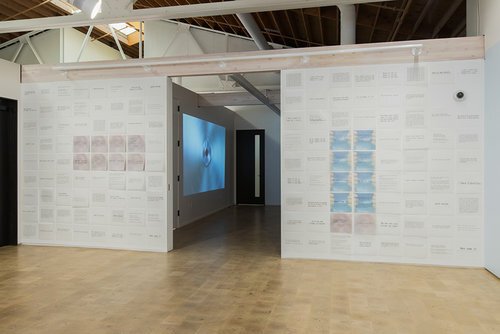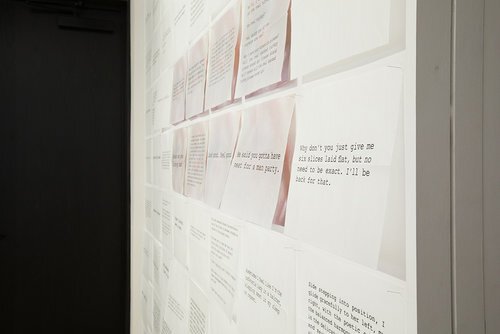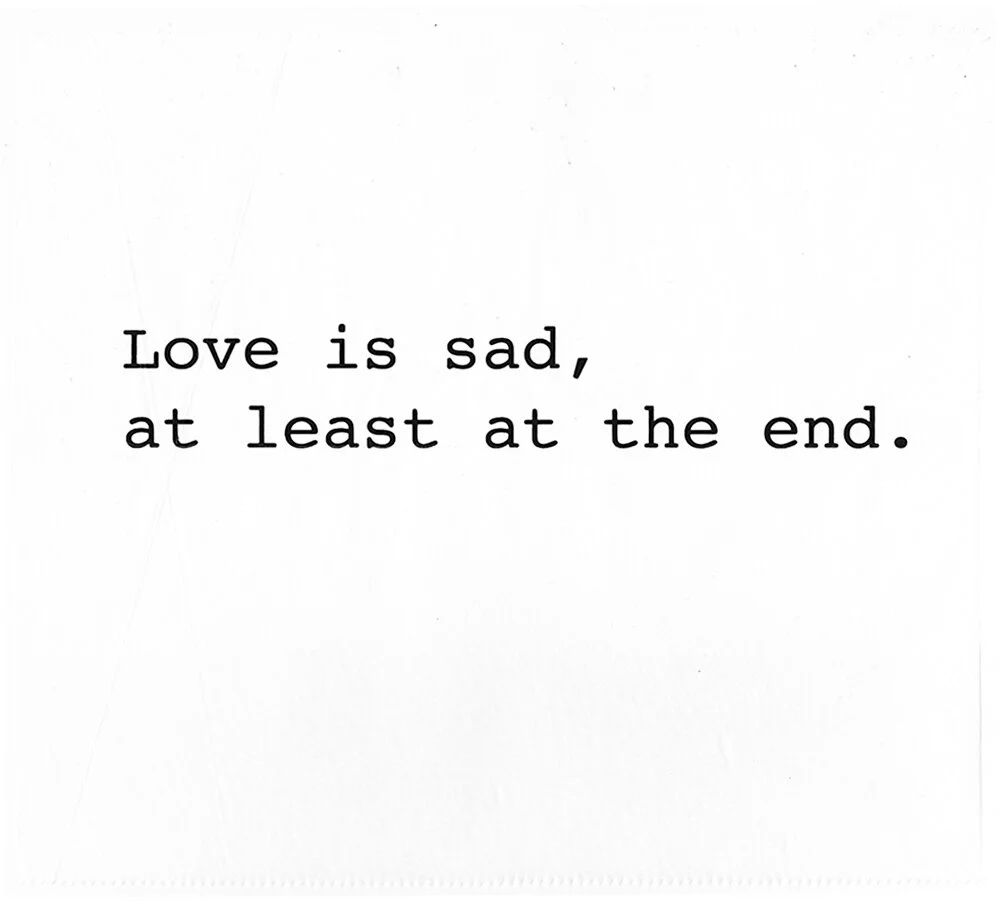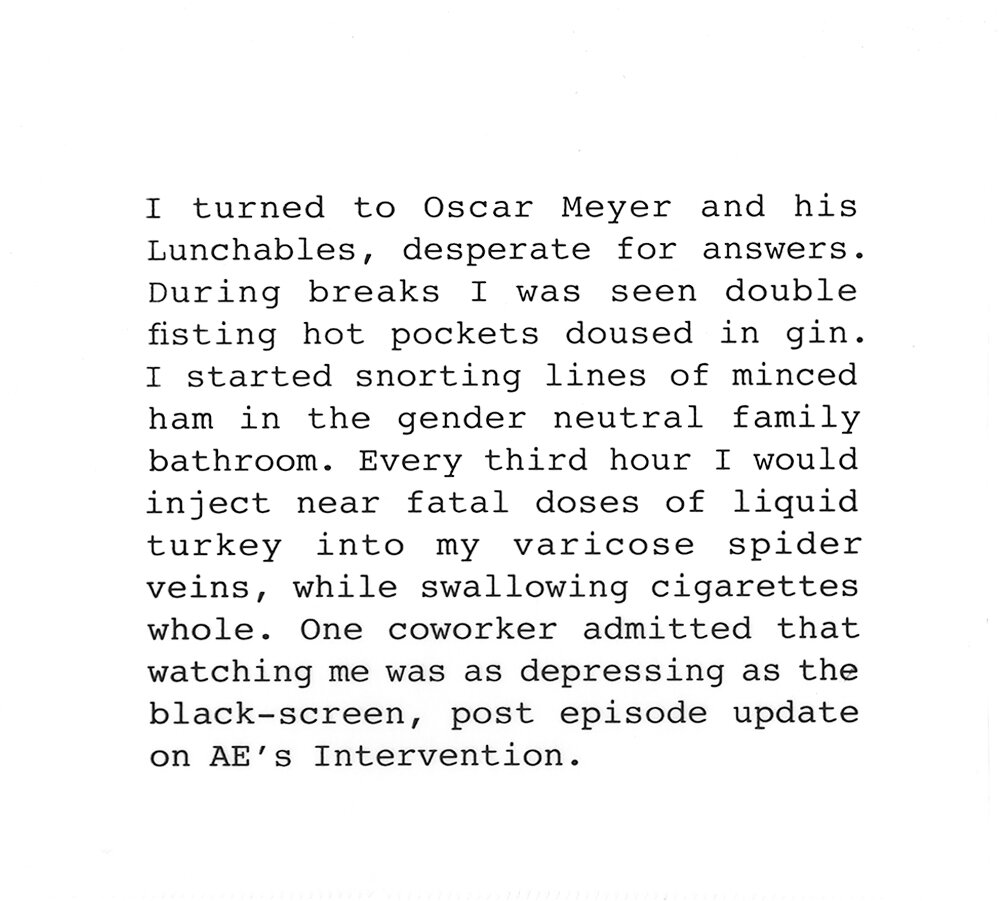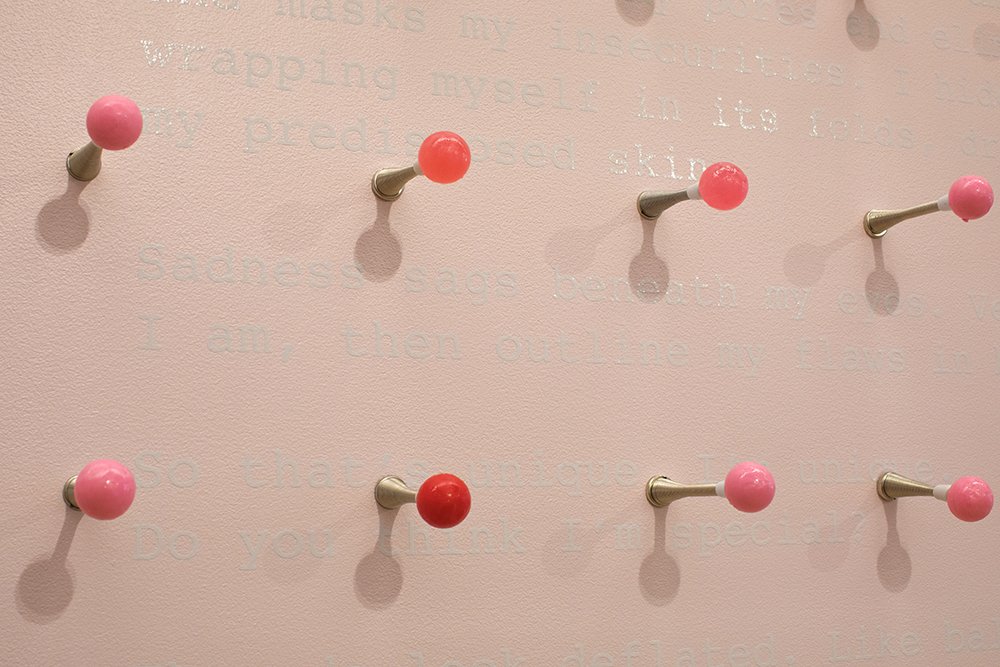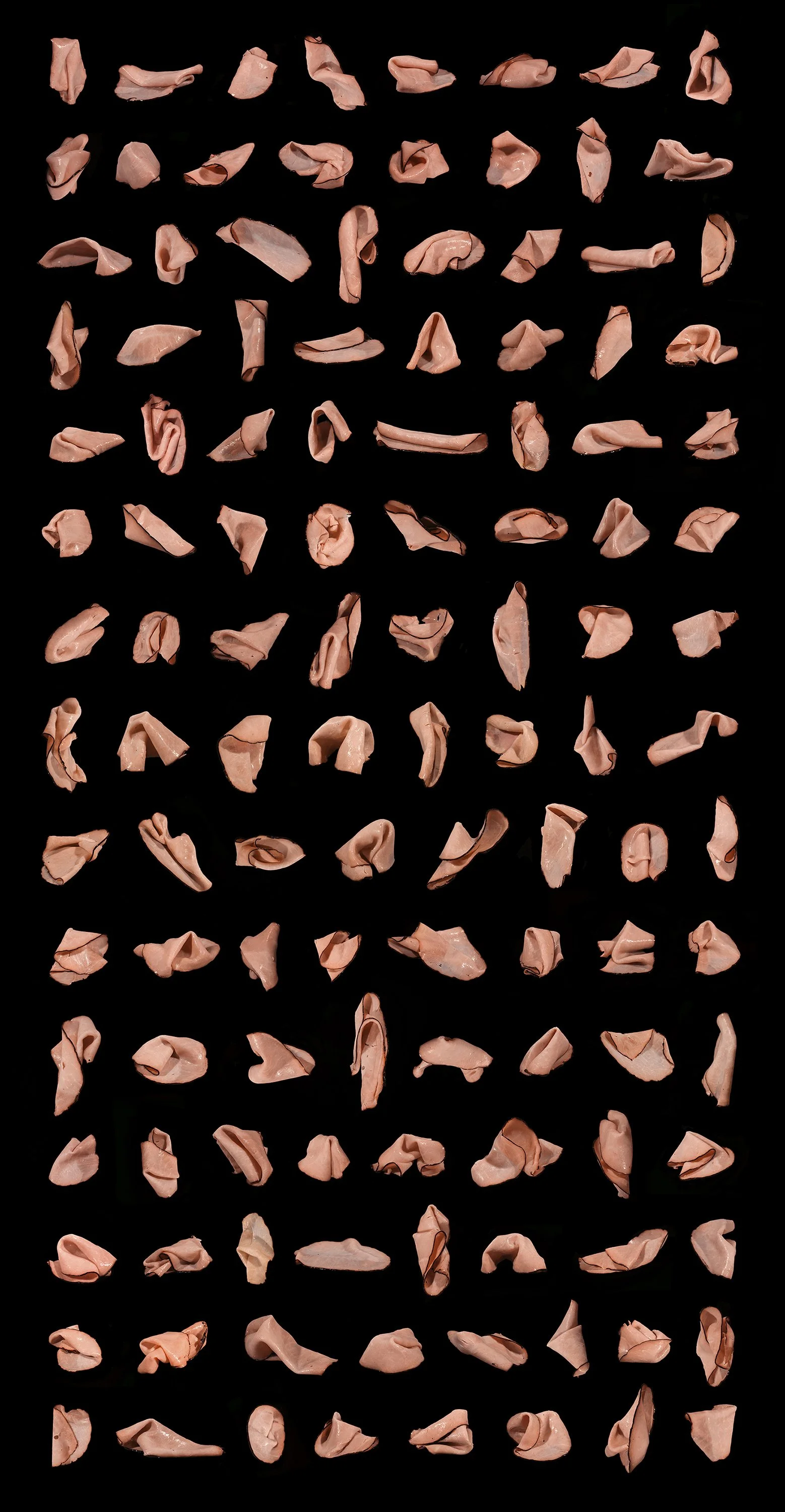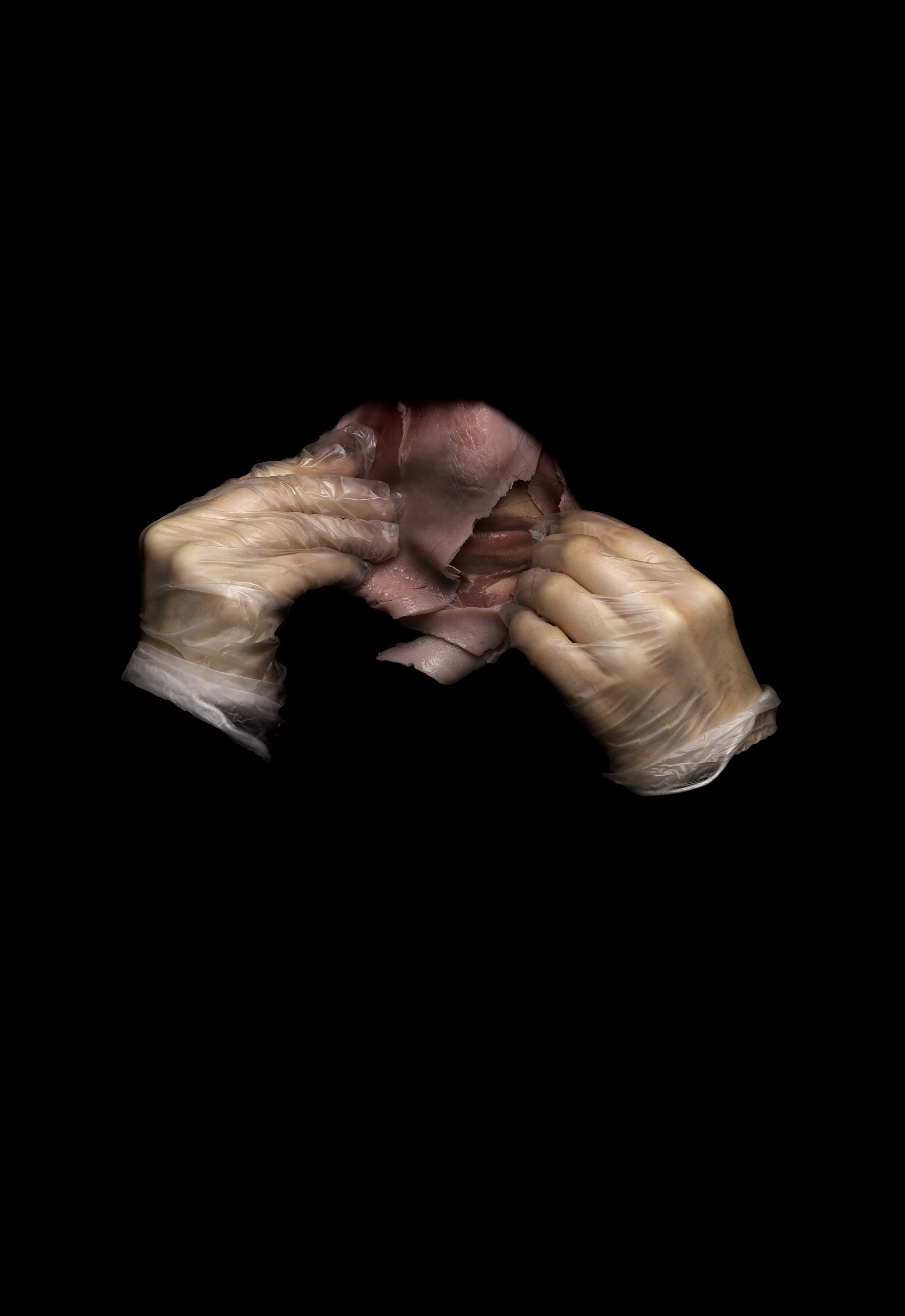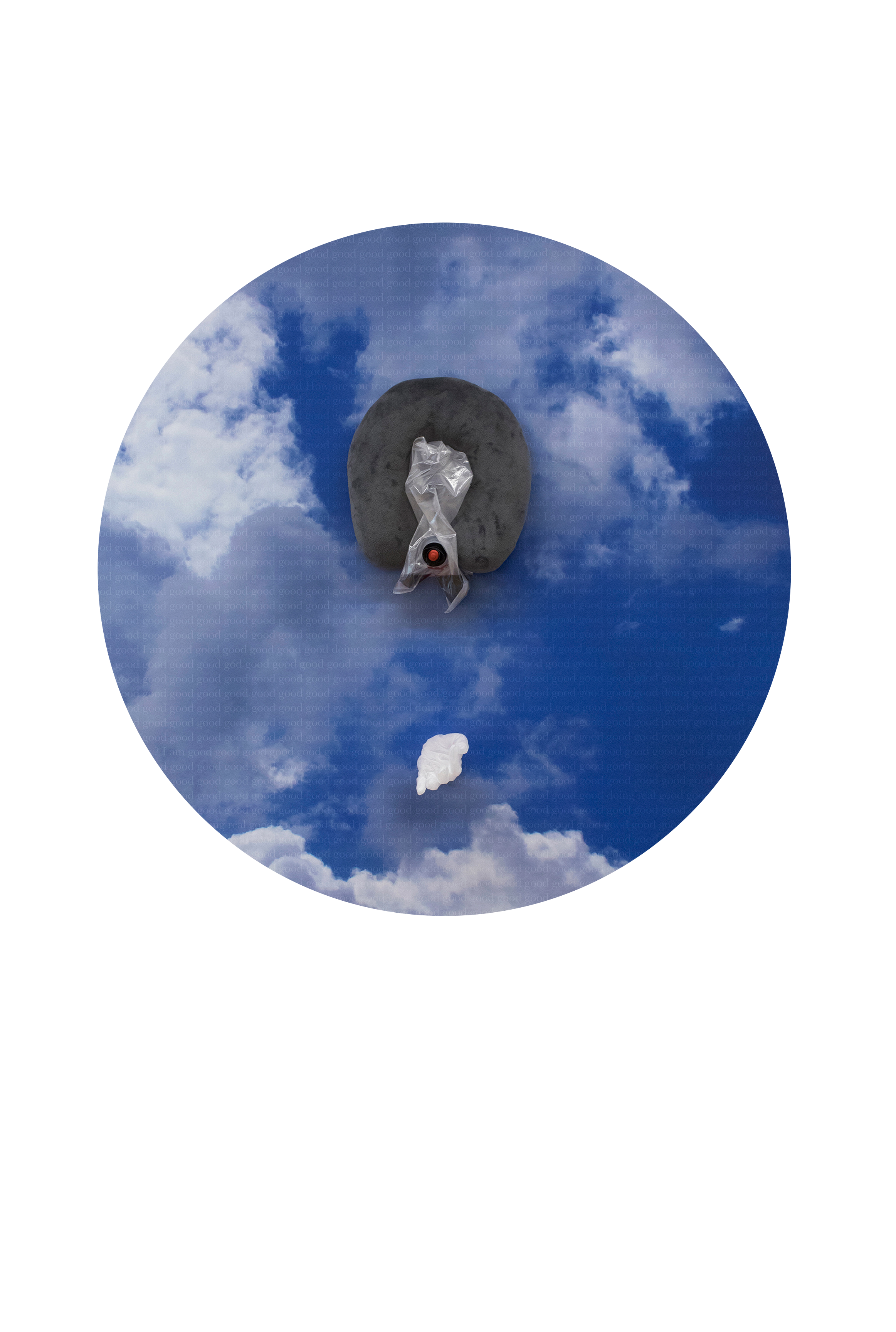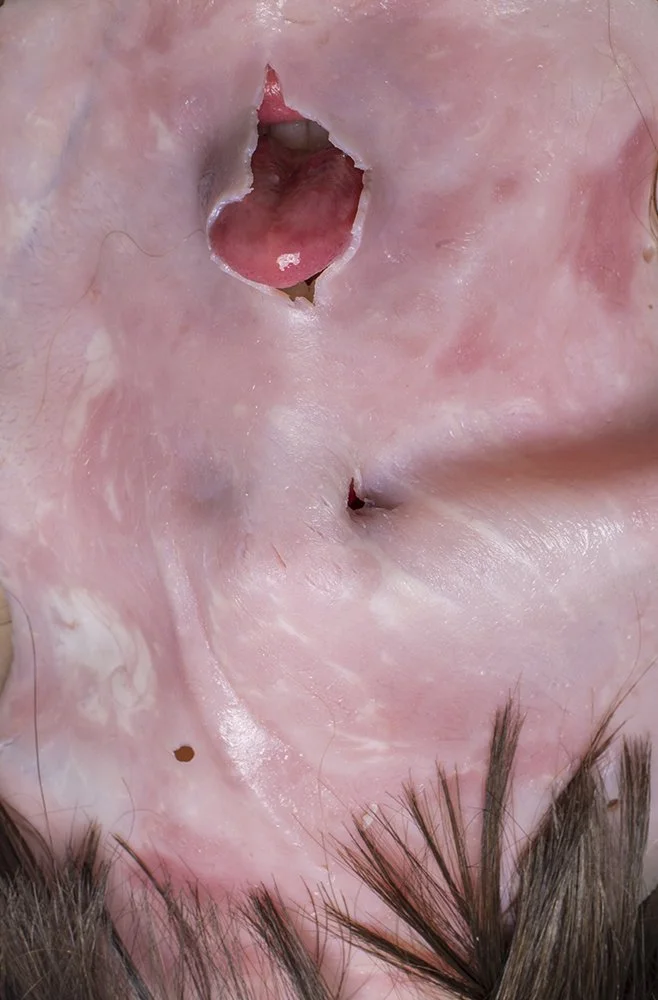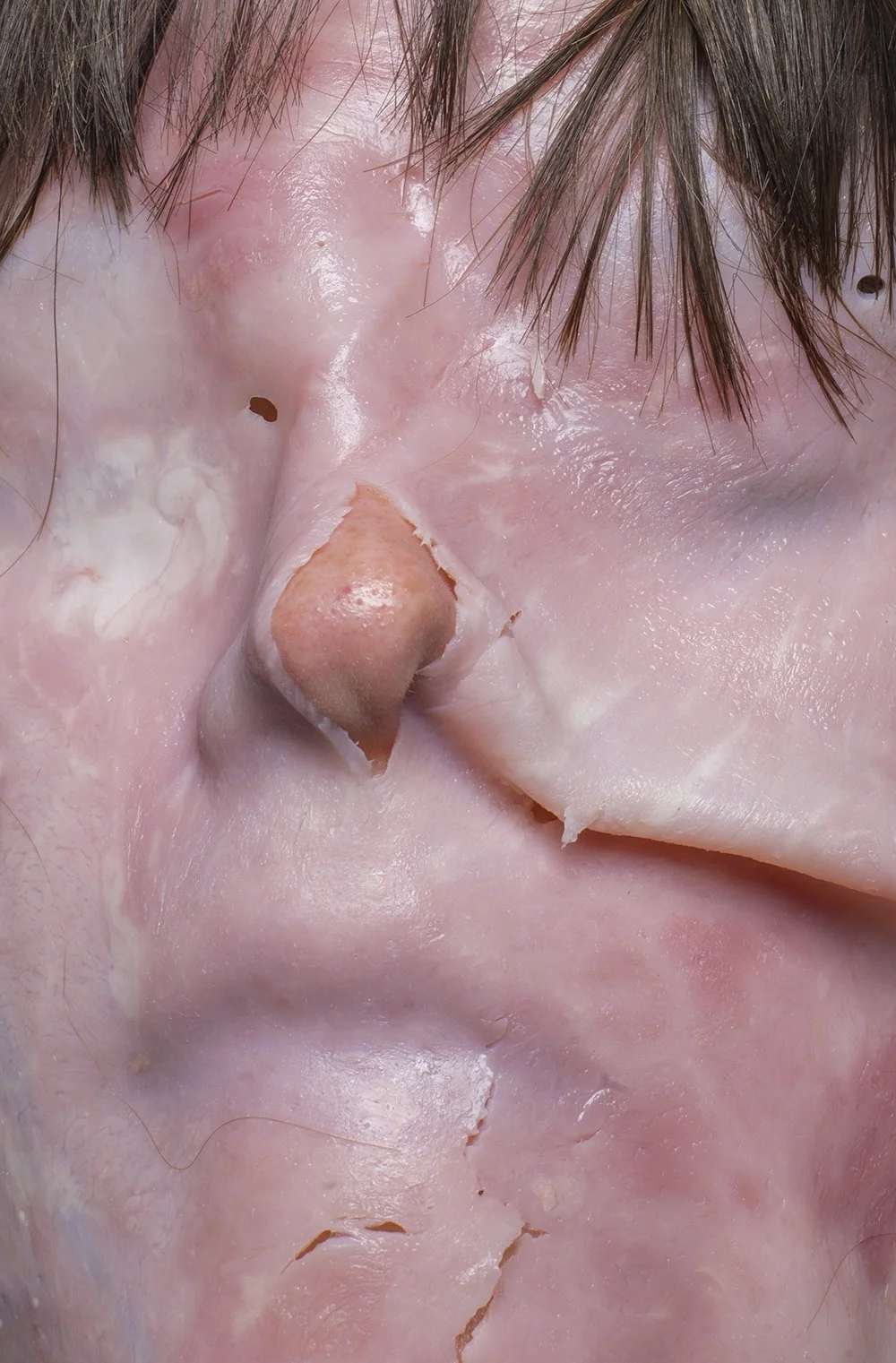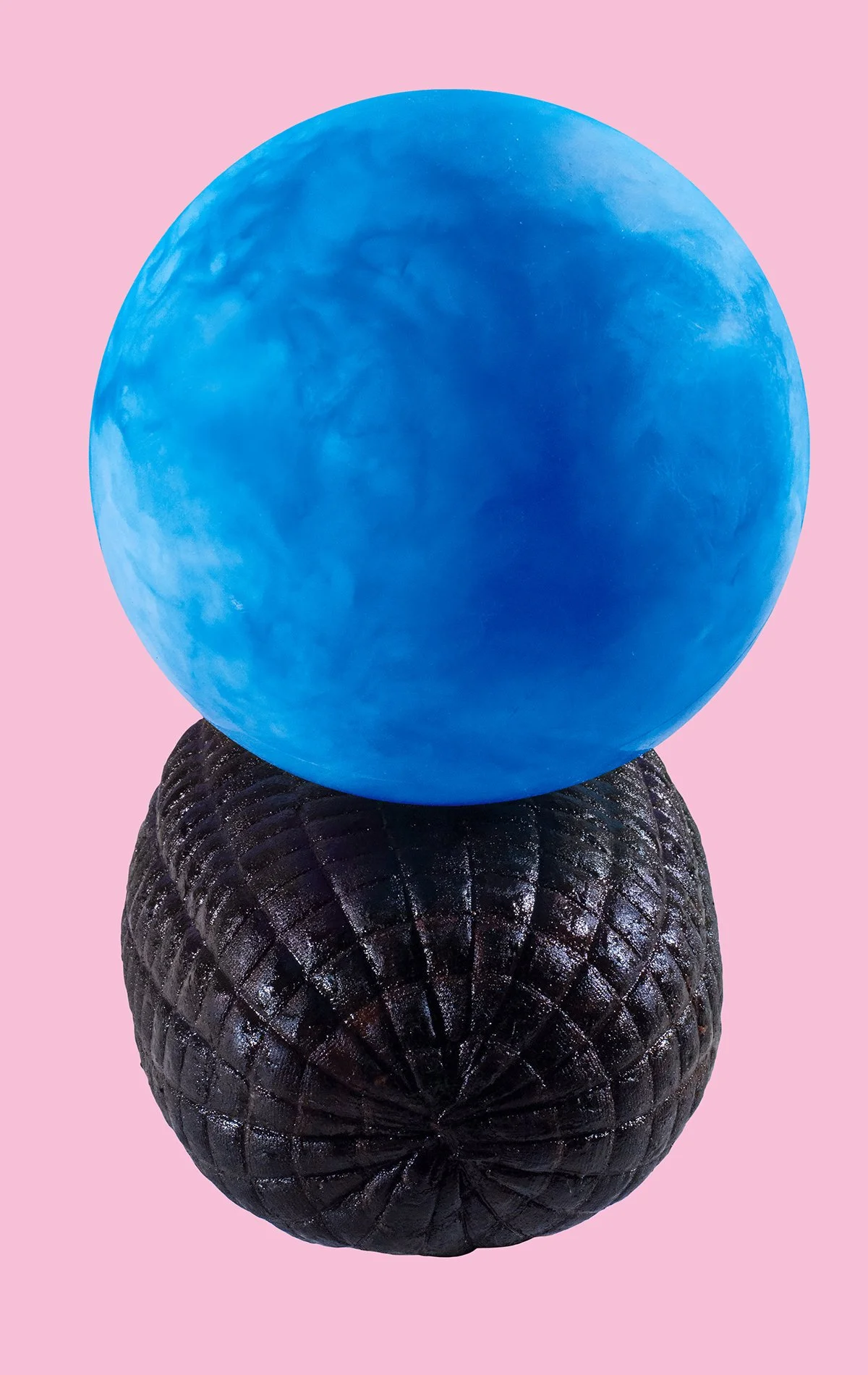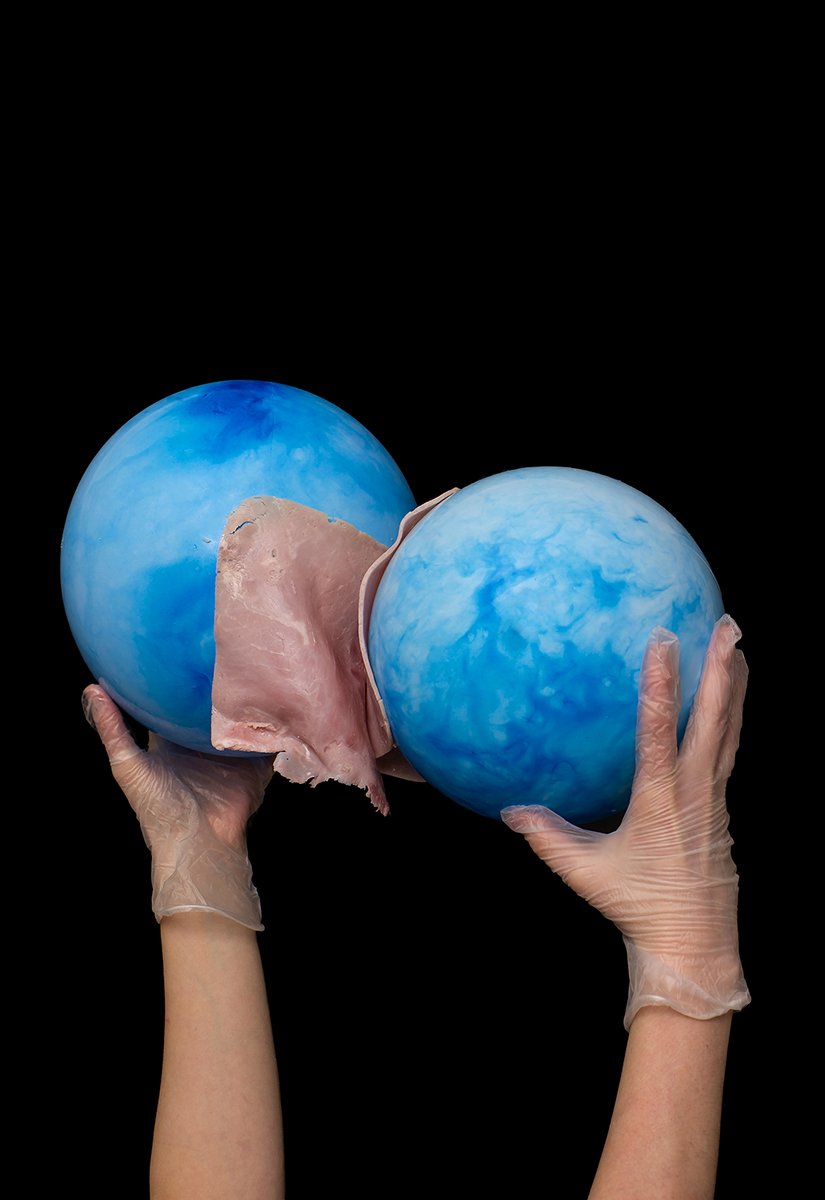
Hello, Welcome.
Hi.
How are you?
You seem nice.
You look nice.
Is this your first time?
Let me put some gloves on for you.
good
good
Now Let us begin.
127 slices from the same Black Forest Ham pose for the camera asking, do you think I’m special?

God is Good, Vinyl, gloved hand, boxed wine, travel head rest
I’m going to gently touch the turkey with my finger, just the tip in a whisper. Turkey turkey, gobble, good.
Omaha-based artist Ella Weber looks at connections between the everyday mundane, consumerism, sexuality, and spirituality through a suburban Midwestern ethos. As a resident of Nebraska, where the slogan is "The Good Life," Weber questions what is meant by "good." Politeness? Morality? Comfort? What does good sound like? What makes a good life? And is "good" good enough?
After completing graduate school, Weber got a job slicing meat behind the deli counter at a chain grocery store. The artist merged her creative practice with her time on the clock, turning the deli into her studio. Exploring corporate culture, comfort and convenience, the polite interactions of a service industry job, and the realities artists face to balance their creative practice and their bills, Weber crafts a strange and playful world in which we question social ideals and aspirations.
Sounding out G-O-O-D, photographs, 26” x 33”

In her video Cycle, the artist escorts viewers through a hypnotic, consumer exchange in latex gloves. Weber narrates in a soft whisper reminiscent of ASMR videos and guided meditation.
Slices of ham and sheets of waxed paper veil and partially reveal a series of the artist's selfies during her lunch breaks, practicing smiling and wearing deli meat masks as an improvised skin care treatment. The spinning blade of a meat slicer reinforces the repetitive nature of everyday life in a consumer-oriented world. In equal parts comforting, monotonous, and sexualixed, the video transitions from predictable rhythms of customer service dialogue into confessional monologue about suburban social expectations and anxieties.
Ella - or Della, as she refers to herself while on the clock - has maintained employment at a grocery deli in a suburb of Omaha since 2015, while also living in her parent's basement. Initially, this arrangement provided flexible supplementary income between artist residencies and adjunct teaching positions. What has emerged from this work is the fruit of circumstance and material, providing direct inroads for examining corporate, consumer, and suburban social behaviours through innuendo and double-entendre.
As any veteran of the service industry knows, it's the hours of small talk over the counter that become the labor's banal refrain.
"Hi, How are you? I'm good, good, good, doing good, pretty good, not bad, I'm good I'm good."
Weber began to populate her social media accounts with dialogue from these customer interactions and assemblages of rejected deli product. After receiving a record low score for customer service from a corporate secret shopper - primarily for not satisfactorily smiling - Weber began to focus her creative inquiry on the "helpful smile" and the other veneers we use to present and protect ourselves publicly.
Following this incident, her lunch breaks became studio sessions for practicing various smiles, captured as bathroom selfies.
"Sometimes, I bring ham into the bathroom and cover my face with a slice of ham, I am, a product in beauty that exfoliates my pores and eliminates my blemishes and masks my insecurities."


Choose to Smile is a dual offering of innocence and innuendo. Sticky pink lollipops bounce on spring doorstops, surrounding a screen encasing the artist's on-again, off-again smile. Over the duration of the video, her welcoming expression takes on an appearance of being practiced, forced, and even painful.
Weber questions the reality of the polite-on-command service industry smile. What purpose does it serve? Do these scripted interactions result in one bobbing through daily life versus truly getting to know oneself, and be known? In her exchanges with customers, now displayed in print on waxed paper, Weber notes the oddly nondescript terms often used when confronted with questions about choice of product and quantity: "just some regular turkey," "a mainstream salami," "a good wad" of cold cuts "sliced nice." Is a smile meant to distract us from the fact that we're not sure what we really want, and lack the language to articulate it?

Agreeability reigns. Everyone is always good. The pleasant suburban sounds of lawnmowers, birds chirping, kids playing, sports, and bouncing balls in Weber's video work are paired with noises of chewing, slapping, squishing, a spinning deli slicer, moistness, bouncing doorstops, and crinkling waxed paper. The nice sounds of "good" curdle into gross and then slide into monotony. The highly processed nature of deli product feeds Weber's practice, serving as a metaphor for the multiple sensory aspects of social conditioning that produce comfortable, shelf-stable, and ultimately bland ambitions of midwestern suburbia.
"The skies are blue; the grass is green yet I'm left with a desire to pull myself out of the vinyl siding of sameness.
Sure it is nice, but is this good? Is there more?
What comes after lunch?"



